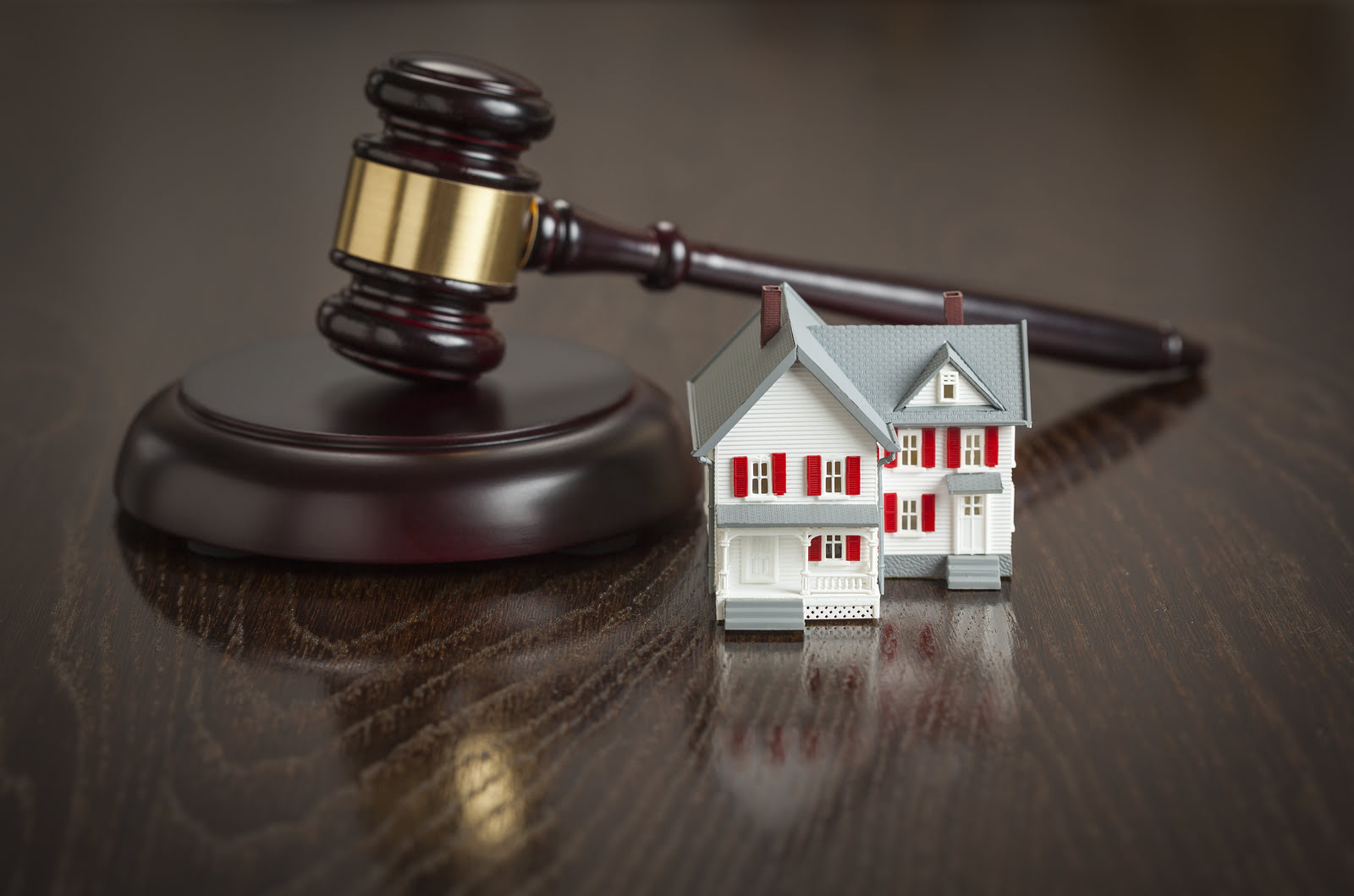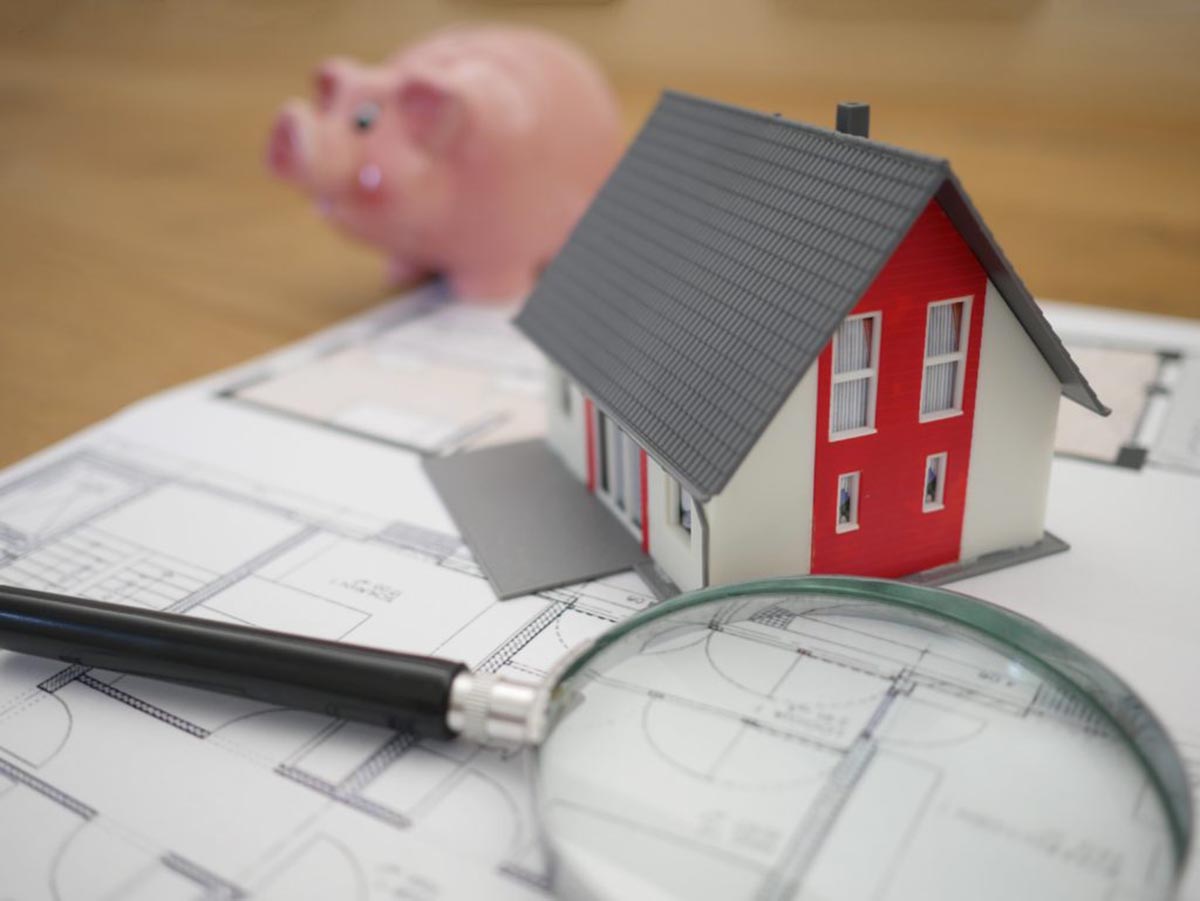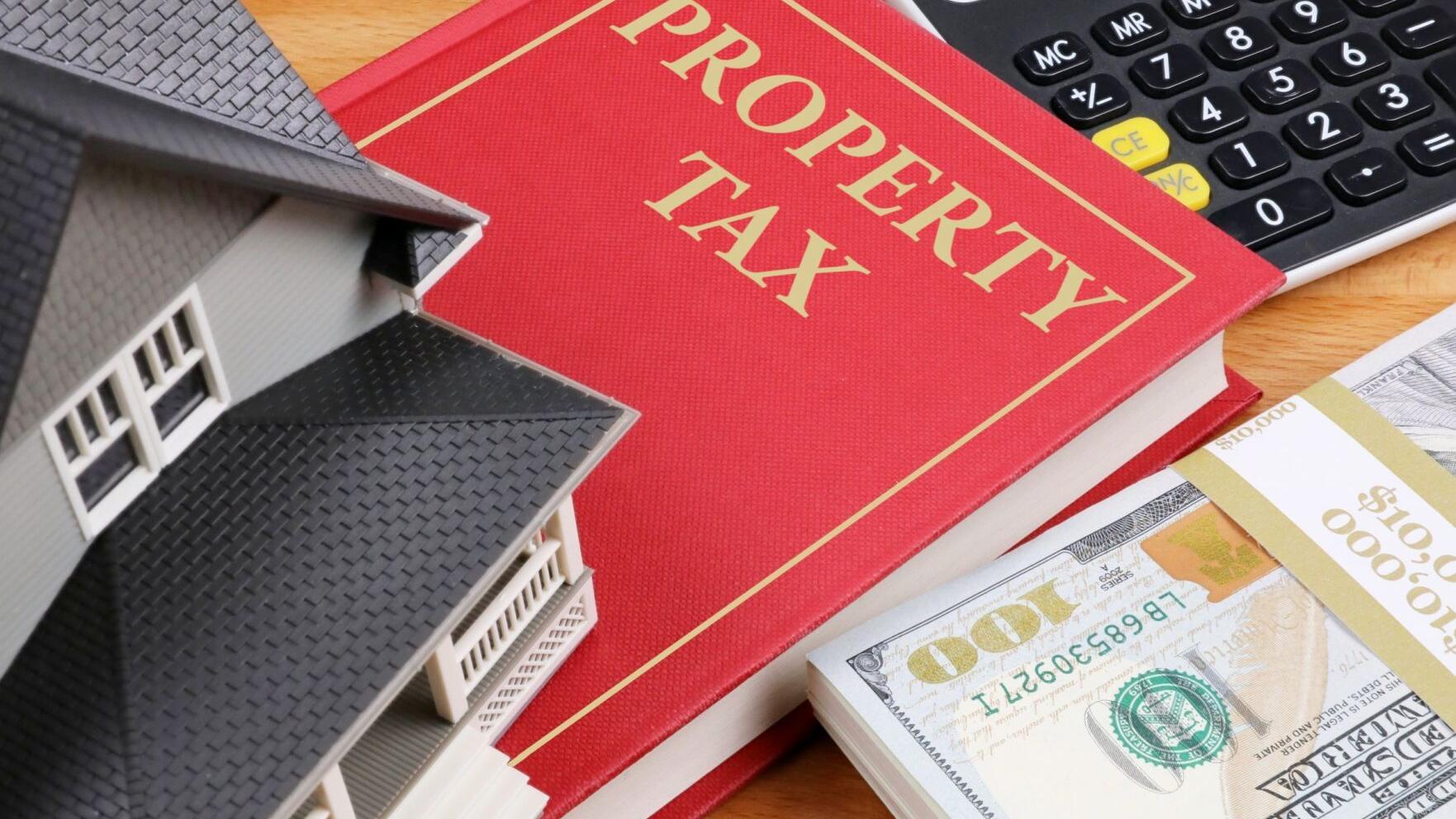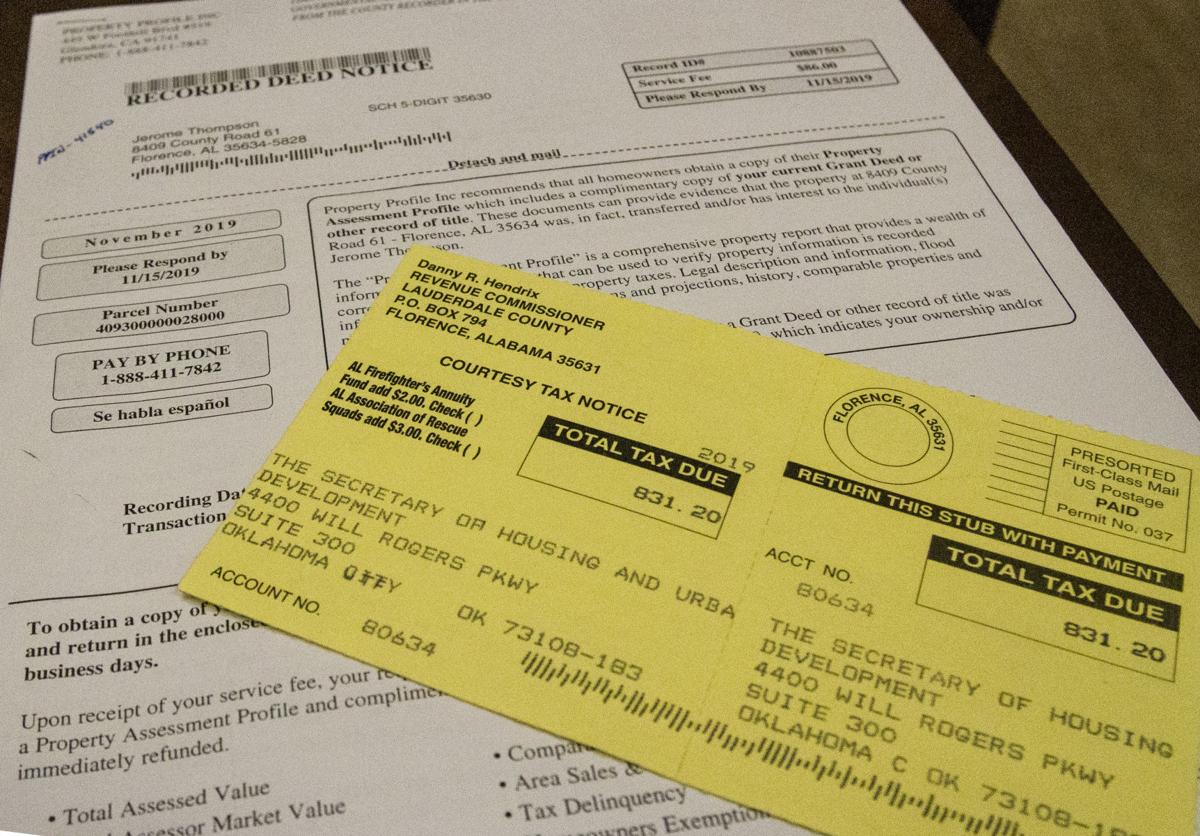Home>Home Maintenance>Why Is My Property Assessment Higher Than My Neighbor’s


Home Maintenance
Why Is My Property Assessment Higher Than My Neighbor’s
Modified: March 6, 2024
Discover why your property assessment is higher than your neighbor's and learn how #home-maintenance can play a role in evaluating property values. Explore the factors that may contribute to these differences.
(Many of the links in this article redirect to a specific reviewed product. Your purchase of these products through affiliate links helps to generate commission for Storables.com, at no extra cost. Learn more)
Introduction
Welcome to the world of property assessments! If you’ve recently received your property assessment notice and discovered that it is higher than your neighbor’s, you may be wondering why. This article will dive into the reasons behind such discrepancies and explore the factors that can influence property assessments.
A property assessment is an evaluation conducted by the local government to determine the value of a property for taxation purposes. The assessed value helps determine the amount of property taxes you are required to pay. It is important to understand that property assessments can vary from property to property, even within the same neighborhood.
There are several factors at play when it comes to property assessments. Understanding these factors will help shed light on why your assessment may be higher than your neighbor’s. Keep in mind that property assessments are determined by a combination of market value, physical property characteristics, and local assessment regulations.
In the following sections, we will explore the various factors that can influence property assessments and discuss potential reasons for higher assessments. Additionally, we will offer guidance on steps you can take if you believe your assessment is incorrect or unfairly high. Let’s explore this intriguing topic further!
Key Takeaways:
- Property assessments can differ due to factors like location, property size, and market conditions. Understanding these influences can help homeowners navigate and challenge their assessments if needed.
- Challenging a property assessment involves reviewing the notice, gathering evidence, contacting the assessor’s office, and attending a hearing. It’s a process that allows homeowners to advocate for fair and accurate assessments.
Read more: Why Did The Real Property Assessment Drop?
Understanding Property Assessments
Before we dive into the reasons behind discrepancies in property assessments, let’s start by understanding the concept of property assessments in more detail.
A property assessment is a valuation of a property conducted by the local government for taxation purposes. It determines the assessed value, which is the value used to calculate property taxes. Assessments are typically conducted periodically, often annually or every few years.
Assessments are based on various factors, including the property’s market value, physical characteristics, and local assessment regulations. Market value is the estimated price that a property would sell for in a fair and open market. It takes into account factors such as location, size, condition, and comparable property sales in the area.
Physical property characteristics play a significant role in determining assessments. Factors such as the size of the property, number of bedrooms and bathrooms, amenities, and overall condition contribute to the assessed value. Additionally, any recent renovations or improvements may impact the assessment.
Local assessment regulations also play a role in determining property assessments. Each jurisdiction has its own rules and guidelines for assessing properties. These regulations may include specific methodologies, assessment ratios, or assessment caps that affect the final assessed value.
It’s important to note that property assessments are not always an exact science. They are estimates made by tax assessors based on available information and evaluation methods. As a result, assessments may not always accurately reflect the current market value of a property.
Furthermore, property assessments are not the same as property appraisals. While both involve valuing a property, appraisals are typically conducted by licensed appraisers for specific purposes such as obtaining a mortgage or buying/selling a property. Assessments, on the other hand, are conducted by government agencies for taxation purposes.
Now that we have a solid understanding of property assessments, let’s explore the factors that can influence the discrepancies we often see in property assessments.
Factors That Can Influence Property Assessments
When it comes to property assessments, several factors can influence the assessed value of a property. Understanding these factors can help clarify why your property assessment may differ from your neighbor’s. Here are some key factors to consider:
- Location: The location of a property can have a significant impact on its assessed value. Properties in highly desirable neighborhoods or with proximity to amenities such as schools, parks, and transportation tend to have higher assessed values.
- Size and Features: The physical characteristics of a property, including its size, number of bedrooms and bathrooms, and additional features such as a swimming pool or garage, can influence its assessed value. Generally, larger and more feature-rich properties tend to have higher assessments.
- Property Condition: The overall condition of a property, including any recent renovations or updates, can affect its assessed value. Well-maintained properties are more likely to have higher assessments compared to properties in poor condition.
- Comparable Sales: Assessors often consider recent sales of similar properties in the vicinity when determining assessments. If there have been significant sales in your neighborhood with higher values, it could impact the assessed value of your property.
- Local Market Conditions: The state of the local real estate market can influence property assessments. If there is high demand and limited supply, property assessments may increase. Conversely, during a downturn in the market, assessments may be lower.
- Assessment Methodology: Each jurisdiction has its own assessment methodology, which can vary in terms of valuation methods, assessment ratios, and assessment caps. These local regulations can result in differences in assessed values between neighboring properties.
- Assessment Timing: As property assessments are conducted periodically, timing can affect the assessed values. If your assessment was conducted during a hot real estate market, it may be higher compared to a neighboring property assessed during a slower market period.
- Property Tax Rates: It’s important to note that assessed values are used to calculate property taxes, and different jurisdictions have varying property tax rates. Even if your assessment is higher than your neighbor’s, your property tax bill may differ due to varying tax rates.
These factors, among others, contribute to the variations in property assessments. Even small differences in any of these factors can result in disparities between neighboring properties.
Discrepancies in Property Assessments
It’s not uncommon to find discrepancies in property assessments, where neighboring properties have different assessed values. These variations can lead to confusion and frustration among property owners. So, why do these discrepancies occur? Let’s explore some possible reasons:
- Individual Assessments: Each property assessment is conducted individually, taking into account the specific characteristics of the property. Assessors may not have the exact same information or evaluation criteria for every property in the neighborhood, leading to differences in assessed values.
- Updates and Renovations: If you recently made improvements or renovations to your property, such as adding an extension or upgrading the kitchen, it could result in a higher assessed value compared to your neighbor’s property that hasn’t undergone these changes.
- Market Fluctuations: The real estate market is constantly changing. If there have been recent sales of similar properties in your neighborhood at higher or lower values, it can influence the assessed values of neighboring properties. Market fluctuations can lead to discrepancies in assessments.
- Assessment Methodologies: Different jurisdictions may use slightly different assessment methodologies and regulations. These variations can result in discrepancies in assessed values between neighboring properties, even if they have similar characteristics.
- Assessment Errors: While uncommon, assessment errors can occur. Mistakes in data entry, clerical errors, or incorrect property information can lead to discrepancies in assessments. If you believe an error has been made, it is important to address it with the appropriate assessment authorities.
- Aging Properties: Older properties may have different assessed values due to factors such as depreciation and wear and tear. If your property is older and in need of repairs or updates, it may have a lower assessed value compared to a newer, well-maintained property in the neighborhood.
- Inconsistent Assessment Practices: In some cases, assessment practices may not be consistent across all properties in a jurisdiction. Differences in how assessments are conducted or the interpretation of assessment guidelines can lead to discrepancies in assessed values.
- Appeals and Adjustments: It is possible that your neighbor successfully appealed their assessment or received an adjustment due to extenuating circumstances. This can result in differences in assessed values between your property and theirs.
Keep in mind that property assessments are not an exact science, and these discrepancies are a common occurrence. If you believe your assessment is significantly higher than it should be, there are steps you can take to challenge it. We will explore these steps in the next section.
Check if your neighbor’s property is similar to yours in size, condition, and location. If there are differences, it could explain the disparity in assessments.
Potential Reasons for Higher Property Assessments
If you’ve discovered that your property assessment is higher than your neighbor’s, you may be wondering what factors could have influenced this difference. While each situation is unique, here are some potential reasons for higher property assessments:
- Property Improvements: If you recently made significant improvements or renovations to your property, such as adding an extra room, upgrading the kitchen, or installing high-end finishes, it can contribute to a higher assessed value. The assessor takes into account the increased value resulting from these improvements.
- Location: Properties in prime locations or desirable neighborhoods tend to have higher assessed values. If your property is situated in a highly sought-after area with access to amenities, scenic views, or proximity to schools and transportation, it can contribute to a higher assessment compared to properties in less desirable locations.
- Market Appreciation: If the real estate market in your area has experienced significant appreciation, property assessments may reflect this increase in value. Market appreciation can be influenced by factors such as economic growth, increased demand, low inventory, or improvements in the surrounding neighborhood.
- External Factors: Changes in the neighborhood or city infrastructure can also impact property assessments. For example, if a new shopping center, park, or transportation hub is developed near your property, it can enhance its value and result in a higher assessment.
- Inaccurate Previous Assessments: It is possible that your previous assessments were undervalued or inaccurately assessed. When reassessments are conducted, adjustments are made to ensure that properties are valued correctly. As a result, your assessment may have increased to align with the current market value.
- Improvements in Comparable Properties: If other properties in your area have undergone renovations or improvements, it can raise the overall assessed values in the neighborhood. Assessments are often influenced by recent sales and the condition of comparable properties, which can result in higher assessments for all properties in the vicinity.
- Assessment Methodology Changes: It is possible that your local jurisdiction has made changes to their assessment methodology or regulations. Updated assessment guidelines, valuation approaches, or changes in assessment ratios can impact the assessed values of properties, potentially leading to higher assessments.
- Misunderstanding of the Property: Sometimes, assessors may not have a complete understanding of the unique characteristics of a property. If the assessor has limited knowledge about specific features or improvements, they may make assumptions that result in a higher assessed value.
Remember, these are potential reasons for higher property assessments, and your situation may involve a combination of factors unique to your property and jurisdiction. If you have concerns about the accuracy of your assessment, it’s essential to take the appropriate steps to challenge it.
Read more: What Is Property Assessment
Steps to Challenge a Higher Property Assessment
If you believe that your property assessment is higher than it should be, you have the right to challenge it. Challenging a property assessment requires careful consideration and following the proper steps. Here is a guide to help you navigate the process:
- Review the Assessment: Carefully review your assessment notice and make sure you understand how your property was evaluated. Check for any errors or discrepancies in property details, such as incorrect size, missing features, or outdated information.
- Gather Supporting Evidence: Collect evidence to support your case. This may include recent appraisals, comparable property sales, photographs of the property’s condition, and any relevant documentation that demonstrates the property’s value is lower than the assessed value.
- Contact the Assessor’s Office: Reach out to the assessor’s office in your jurisdiction to discuss your concerns. Provide them with your evidence and explain why you believe your assessment is incorrect or disproportionately high compared to similar properties in your area.
- Request a Hearing or Reconsideration: If your initial contact with the assessor’s office does not resolve your concerns, you may need to formally request a hearing or reconsideration. Follow the guidelines provided by your local jurisdiction to initiate this process.
- Prepare for the Hearing: If a hearing is scheduled, prepare your case by organizing your evidence, creating a clear and concise argument, and knowing the assessment process and regulations specific to your jurisdiction. Consider hiring a professional, such as an appraiser or tax consultant, to support your case.
- Attend the Hearing: Make sure to attend the scheduled hearing and present your case to the assessment review board or similar authority. Clearly articulate your concerns, provide the supporting evidence, and respond to any questions or inquiries from the board.
- Review the Decision: After the hearing, carefully review the decision made by the assessment review board. If the decision is in your favor, and your assessed value is adjusted, ensure that the changes are accurately reflected in your future property tax bills.
- Consider Further Appeals: If you are not satisfied with the outcome of the hearing, you may have the option to pursue further appeals, such as filing a complaint with a assessment appeals board or seeking legal representation to challenge the assessment in court.
Remember, the specific procedures for challenging property assessments can vary depending on your jurisdiction. It’s important to familiarize yourself with the local assessment process and regulations to ensure you follow the correct steps.
While challenging a property assessment can be a time-consuming process, it is important to advocate for fair and accurate assessments. Take the necessary steps to ensure that your property taxes reflect the true value of your property.
Conclusion
Property assessments can often lead to confusion and frustration, especially when neighboring properties have different assessed values. Throughout this article, we have explored the various factors that can influence property assessments and the potential reasons for discrepancies.
Understanding the intricacies of property assessments is crucial for homeowners to make sense of why their assessment may be higher than their neighbor’s. Factors such as location, size, features, property condition, market conditions, assessment methodologies, and timing all play a role in determining the assessed value of a property.
Discrepancies in property assessments are common, and they can occur due to individual assessments, updates and renovations, market fluctuations, assessment errors, aging properties, inconsistent assessment practices, or appeals and adjustments made by neighboring property owners. It’s important to keep in mind that property assessments are not always an exact science, and they are subject to interpretation and evaluation methods.
If you believe that your property assessment is unfairly high, there are steps you can take to challenge it. Reviewing the assessment, gathering supporting evidence, contacting the assessor’s office, requesting a hearing or reconsideration, preparing for the hearing, attending the hearing, and reviewing the decision are all part of the process to challenge a higher property assessment.
It’s important to understand the specific procedures and regulations in your jurisdiction when challenging a property assessment. While the process can be time-consuming, it allows homeowners to advocate for fair and accurate assessments to ensure that their property taxes reflect the true value of their property.
Remember, property assessments are a method to determine property values for taxation purposes. By understanding the factors that influence assessments and the steps to challenge them, homeowners can navigate the landscape of property assessments with confidence and ensure they are being taxed fairly.
Frequently Asked Questions about Why Is My Property Assessment Higher Than My Neighbor's
Was this page helpful?
At Storables.com, we guarantee accurate and reliable information. Our content, validated by Expert Board Contributors, is crafted following stringent Editorial Policies. We're committed to providing you with well-researched, expert-backed insights for all your informational needs.















0 thoughts on “Why Is My Property Assessment Higher Than My Neighbor’s”